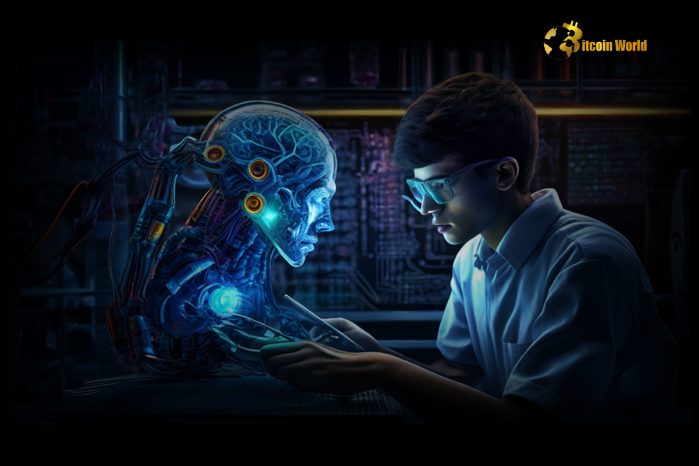History of AI and Ethical Considerations for Generative AI
Artificial Intelligence (AI) has come a long way since its inception, evolving from theoretical concepts to practical applications that shape our daily lives. However, as AI grows in capability, it also raises important ethical questions. This guide dives into the history of AI, introduces the father of AI, and addresses ethical considerations when using Generative AI.
History of AI: From Concept to Reality
Early Foundations
The concept of AI has roots in ancient history, with myths and stories imagining intelligent machines. The formal development of AI began in the 20th century.
- 1940s: Early Theoretical Work
- Alan Turing, a British mathematician, introduced the concept of machines capable of performing tasks requiring human intelligence.
- Turing’s seminal 1950 paper, “Computing Machinery and Intelligence,” proposed the Turing Test to evaluate a machine’s ability to exhibit intelligent behavior.
- 1956: The Birth of AI
- The term Artificial Intelligence was coined at the Dartmouth Conference by John McCarthy, widely regarded as the Father of AI.
- This event marked the beginning of AI as a field of study.
- 1960s-1970s: Early Progress
- AI research focused on problem-solving and symbolic reasoning.
- Programs like ELIZA (an early chatbot) and Shakey the Robot showcased AI’s potential.
- 1980s: Rise of Machine Learning
- The introduction of neural networks and backpropagation revitalized AI research.
- Expert systems, such as MYCIN for medical diagnosis, gained attention.
- 1990s: Advancements in Computation
- AI systems began achieving practical success, including IBM’s Deep Blue, which defeated world chess champion Garry Kasparov in 1997.
- 2000s-Present: AI Revolution
- The rise of big data and deep learning propelled AI to new heights.
- Tools like ChatGPT and DALL-E exemplify the capabilities of Generative AI.
- Autonomous vehicles, voice assistants, and recommendation systems have become mainstream.
Father of AI: John McCarthy
John McCarthy, a computer scientist and cognitive scientist, is often referred to as the Father of AI for his pivotal role in defining the field.
Key Contributions
- Coined the term Artificial Intelligence at the 1956 Dartmouth Conference.
- Developed LISP, one of the earliest programming languages for AI.
- Advocated for the creation of AI systems that mimic human reasoning.
McCarthy’s vision of AI as a tool to enhance human capabilities continues to inspire researchers and developers today.
Ethical Considerations When Using Generative AI
Generative AI has unlocked immense creative and practical potential, but its capabilities also pose ethical challenges.
1. Misinformation and Deepfakes
Generative AI can create realistic fake content, including videos, images, and news articles, potentially misleading audiences or damaging reputations.
- Example: AI-generated deepfakes used for political propaganda.
- Solution: Develop detection tools and promote digital literacy to identify fake content.
2. Privacy Concerns
AI systems often require large datasets, which may include sensitive personal information.
- Risk: Unauthorized use of data or breaches of privacy.
- Solution: Implement robust data protection measures and ensure compliance with privacy regulations like GDPR.
3. Bias and Fairness
Generative AI models can inherit biases from the datasets they are trained on, leading to unfair or discriminatory outcomes.
- Example: AI-generated job recommendations favoring one demographic over another.
- Solution: Use diverse training datasets and perform regular audits for bias.
4. Intellectual Property Issues
Generative AI may create content resembling copyrighted material, raising questions about originality and ownership.
- Example: AI art that closely mimics a famous artist’s style.
- Solution: Establish clear guidelines for copyright and fair use in AI-generated content.
5. Ethical Use in Sensitive Industries
Generative AI in areas like healthcare or finance must be carefully monitored to prevent harm.
- Example: Incorrect AI-generated medical advice.
- Solution: Require human oversight and validation in critical applications.
6. Environmental Impact
Training AI models consumes significant computational resources, contributing to energy consumption and carbon emissions.
- Solution: Invest in energy-efficient AI technologies and renewable energy sources.
FAQs About AI History and Ethics
1. Who is the father of AI?
John McCarthy, who coined the term Artificial Intelligence and organized the 1956 Dartmouth Conference, is considered the father of AI.
2. When did AI start?
AI formally began as a field of study in 1956 with the Dartmouth Conference.
3. What are the ethical issues with Generative AI?
Key ethical issues include misinformation, privacy concerns, bias, intellectual property conflicts, and environmental impact.
4. How can we prevent bias in AI?
Bias can be mitigated by using diverse datasets, conducting regular audits, and implementing fairness guidelines.
5. Why is Generative AI controversial?
Generative AI is controversial due to its potential to create harmful content, infringe on intellectual property, and misuse personal data.
Conclusion
AI has come a long way since its early theoretical foundations, evolving into a transformative force in modern technology. While its potential is immense, especially with innovations like Generative AI, ethical considerations must guide its development and use.
Understanding AI’s history helps us appreciate its achievements, while addressing its ethical challenges ensures a future where technology benefits humanity responsibly.
For further insights, explore our guide on Generative AI and Its Applications.
Disclaimer: The information provided is not trading advice, Bitcoinworld.co.in holds no liability for any investments made based on the information provided on this page. We strongly recommend independent research and/or consultation with a qualified professional before making any investment decisions.

